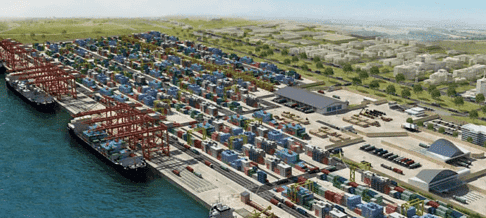Additionally, it must ensure that these ambassadors and diplomats are paid their salaries promptly. No government can expect its diplomats—who are supposed to defend the country’s image and interests abroad—to be effective if their salaries are not being paid? Failing to support and defend Nigerians abroad weakens the state’s legitimacy and risks eroding the trust and contributions of the diaspora. Moreover, Nigeria should actively negotiate with the U.S. to address concerns such as visa overstays and other issues that may have contributed to the restrictions. It should work with the U.S. to establish clear and transparent protocols for the repatriation of individuals who overstay their visas or violate immigration laws.
The Tinubu government should also reassure Nigerian citizens that it is actively working to address the visa issue and minimise its impact on legitimate travel and business. By taking these steps, Nigeria can demonstrate its commitment to addressing the concerns raised by the U.S. and other countries, while safeguarding the interests of its citizens and promoting healthy bilateral relations.
While it may be tempting to retaliate—perhaps by issuing reciprocal visa restrictions—such actions rarely help and often damage bilateral interests. Nigeria must rise above emotional diplomacy and embrace strategic patience. Retaliation should be a last resort, only considered if all diplomatic avenues have been exhausted and discriminatory treatment of Nigerians persists unjustly. Rather than retaliate, Nigeria must look inward and fix the systemic governance failures that triggered the restrictions in the first place.
However, the most urgent task before the Tinubu government is to halt the mass exodus—the growing trend of young and old Nigerians fleeing the country in search of meaningful livelihoods abroad, popularly referred to as the “japa” phenomenon. This mass migration has reached alarming proportions. From skilled professionals to students and entrepreneurs, the country is witnessing a massive brain drain that threatens its future development. While migration is a global reality, the scale and desperation among Nigerians today point to a systemic crisis.
After all, Nigerians are not inherently nomadic. They do not hate their country. They flee because Nigeria has failed to offer them safety, dignity, opportunity, and hope. Many have lost faith not only in the system but in the very idea of “Project Nigeria.” The solution to this crisis lies not in denying desperate Nigerians visas, but in making Nigeria a flourishing country worth living in. The responsibility is with the government—but also with the private sector, civil society, and all Nigerians committed to rebuilding the nation.
At the heart of the flight is the lack of sustainable livelihoods. If most Nigerians were gainfully employed at home, they would not be fleeing abroad in search of elusive jobs. Therefore, the Tinubu government, private sector, and civil society must prioritise job creation—not just in numbers, but in quality and dignity. This involves investing in industries that can absorb young talent—such as technology, agriculture, renewable energy, and manufacturing; reforming the ease of doing business to support startups and small enterprises; and expanding targeted programmes that offer grants or low-interest loans to young entrepreneurs.
Nigerian students are leaving in droves for foreign universities due to a decaying educational system plagued by strikes, outdated curricula, and poor infrastructure. The Tinubu government must fix the education system. To do this, the government must adequately fund and reform public universities and polytechnics. It should introduce tech-driven, 21st-century learning that prepares students for global competition and create pathways linking education and industry to reduce graduate unemployment. A quality, affordable, and globally competitive education system will restore confidence and reduce the ‘japa’ phenomenon. Governments at the state and local levels have commensurate roles to play in reinventing Nigeria. Governors in particular must rise up to their responsibilities.
Many Nigerians fleeing abroad have lost confidence in the Nigerian government. Therefore, the Tinubu government must restore trust in governance and leadership. Many Nigerians see a system rigged against them—where corruption is rewarded, justice is delayed, and merit is irrelevant. Nigeria must reform its political processes to promote merit and ensure electoral credibility. The government must end impunity for corruption, hold public officials accountable, and build transparent institutions that serve the people—not just political elites.
Insecurity—ranging from terrorism and banditry to kidnappings and police brutality—is also driving people out of the country. The Tinubu government must recognise that it is the constitutional responsibility of the federal government to tackle insecurity. This duty cannot be outsourced or improvised with propaganda to create a false impression of progress. A government that cannot protect its citizens is, by all standards, a failed government.
When the daily struggle for survival does not ease, emigration becomes inevitable. That is why the government must make Nigeria a livable country. Basic services—such as stable electricity, affordable primary healthcare, and functional transportation—are essential to keeping Nigerian citizens at home.
Until we create a country where the average Nigerian can dream, thrive, and be free, the exodus will continue unabated. Therefore, the government must prioritise the welfare of its citizens, starting with those living at home. It must foster national pride and cultural confidence so that Nigerians believe they can succeed within their own country—not only abroad. When ordinary Nigerians believe in their country’s political leadership, they will fight to fix it—not flee from it.














